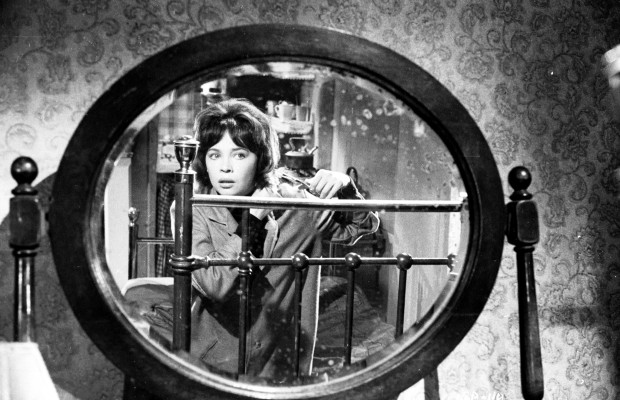What happened to former Garda Majella Moynihan – pressurised into yielding her baby son for adoption, back in the 1980s, after she became pregnant out of wedlock – is distressing and upsetting.
And it’s certainly unjust that women were stigmatised when this happened while the fathers were seldom held responsible for a pregnancy they had engendered.
It’s being described as characteristic of “Ireland’s dark past”, and it’s been reported that the Gardai were “very influenced by the Church” in their attitudes. (It’s also been reported that the Archbishop of Dublin saved Majella from being dismissed from the police force – apparently because penalising single mothers might encourage abortions.)
Disapproving
But Ireland was not unique in disapproving of birth outside of marriage. This was almost universally practiced until the 1960s – and it is still a source of discrimination in Japan, for example.
A slew of British movies and novels appeared in the 1960s which highlighted the plight of the ‘outcast’ status of pregnant young woman, especially when abandoned by her child’s father: Shelagh Delaney’s A Taste of Honey, Lynne Reid Banks’ The L-Shaped Room, Margaret Drabble’s The Millstone.
Drabble’s title involving a ‘millstone’ speaks for itself about an unmarried mother with a child, with its Biblical allusion to a doomed fate (Drabble was raised a Quaker). In The L-Shaped Room, the unmarried pregnant girl is shacked up in a boarding house with ‘other misfits’.
Yes, the treatment of unmarried pregnant young women was often unkind and uncompassionate; but it wasn’t uniquely Irish.
In many professions, it was also believed – up to the 1980s – that it would be difficult for a woman to continue in a stressful job if she had a young child. Air stewardesses everywhere were obliged to resign on marriage since it was supposed they would subsequently start a family. It is still a controversial debate in some armies – and in some firefighting units – about whether a woman can be an effective soldier when pregnant, nursing or caring for a young child.
A slew of British movies… highlighted the plight of the ‘outcast’ status”
All these patterns are changing and adapting, and proper arrangements for maternity leave certainly help women take time for motherhood while continuing in their professions. And yet only this week, the British Labour MP Stella Creasy has claimed that the House of Commons makes it almost “impossible” for a woman politician to have a baby and get equal treatment in the Mother of Parliaments.
The dire side-effects of opium
British Conservative contender Rory Stewart [pictured] has admitted that he smoked opium when visiting the Middle East, which caused some ripples. My late husband, Richard, also tried this experiment in Vietnam.
He was brought into an opium den where wizened men lay listlessly on couches with their opium pipes. He thought they were in their 80s, but in fact they were only in their 40s or 50s: the drug had aged them by 40 years. They were also desperately afflicted by constipation, a known side-effect.
He tried the opium, and since it is a pain-killer, found it initially a pleasant shield against any reality. But the sight of those wizened opium addicts never left him, or the human cost of their addiction.
***
I have come rather late to the writings of John O’Donohue, the former priest and poet who died, aged only 52, in 2008. He was a Hegalian scholar who wrote his PhD thesis in German. He was also a Clareman who grew up in an Irish-speaking ambience, and steeped in Celtic spirituality. From his first book Anam Cara, his writings attained almost cult status.
O’Donohue seems to touch on a need for a wider spirituality than the institutional churches can provide – he resigned from the priesthood because he found the institutional Church almost arid. In his book Divine Beauty, he writes with some contempt about “the worn platitudes of staid authority”.
Divine Beauty is a paean of praise to beauty in all its forms, including the transcendental. In this, he has also touched on the spirit of the age. “To behold beauty dignifies your life; it heals and calls you out beyond the smallness of your own self-limitation to experience new horizons. To experience beauty is to have your life enlarged,” he wrote.
Yet, despite his concerns that our modern consumerist world lacks beauty, there is a huge appetite for beauty today. Art exhibitions are packed to the gunnels – including, sacred art by such as Da Vinci, Caravaggio and Burne-Jones. Operas, ballets, classical concerts are booked out as soon as announced.
Beauty is indeed something ‘divine’ and people hunger for it.


 Mary Kenny
Mary Kenny Leslie Caron plays Jane,
a single French girl who
became pregnant by a man she is not in love
with, in The L-Shaped Room.
Leslie Caron plays Jane,
a single French girl who
became pregnant by a man she is not in love
with, in The L-Shaped Room. 